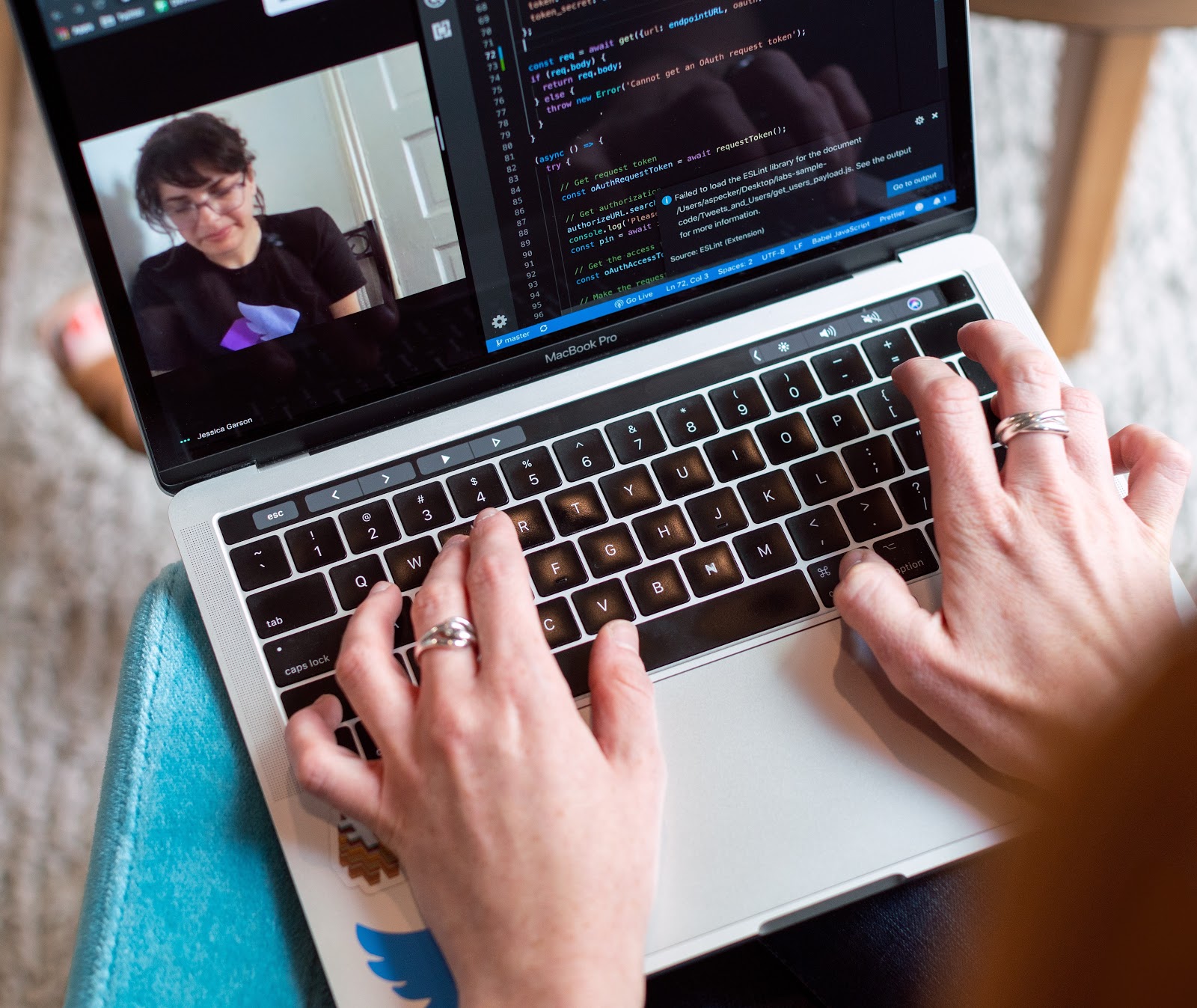Where are you moving to?
How to Adjust to Remote Learning at USC
Table of contents
- University of Southern California Students
- Covering Different Learning Scenarios
- How to Adjust to Remote Learning at USC
- Conclusion: Overcoming Remote Learning
As USC students navigate the challenges of remote learning, it's essential to have the right strategies to succeed. USC announced in the Fall of 2020 that most of its classes would be online, which means that learning how to adjust to remote instruction will be crucial for every USC student.
In this article, we'll provide expert tips and actionable strategies to help you adjust to remote learning successfully.
The challenges of remote learning
The challenges of remote learning can be daunting for USC students. Many students are used to the traditional classroom setting, and the transition to online learning can be a significant adjustment.
Remote learning can present unique challenges, such as difficulty staying motivated, lack of social interaction, and the need to manage time effectively. Additionally, USC students may face technical difficulties or struggle with navigating the university's online learning platforms. All of these factors can make remote learning challenging for students.
Importance of having the right strategies to succeed
Having the right strategies to succeed in remote learning is critical to academic success. Without the appropriate tools and strategies, students may struggle to stay engaged, organized, and motivated.
Remote learning requires discipline and self-motivation, as students must manage their time effectively and avoid distractions. Additionally, students must be able to adapt to new technologies and online learning platforms quickly.
By having the right strategies in place, students can thrive in the remote learning environment and achieve academic success.
Expert tips and actionable strategies to adjust to remote learning successfully
To adjust to remote learning successfully, USC students need expert tips and actionable strategies. In this article, we provide tips and recommendations based on the author's expertise in teaching and remote learning.
Some of these strategies include setting up a designated study area, creating a schedule, and minimizing distractions. We also recommend utilizing available resources such as virtual office hours, online tutoring, and study groups.
Additionally, we provide advice on how to stay motivated and engaged in online classes, such as participating in virtual discussions, connecting with classmates, and taking advantage of available resources. By implementing these expert tips and actionable strategies, USC students can adjust to remote learning successfully and achieve academic success.
University of Southern California Students
Targeting USC students specifically
Targeting USC students specifically is crucial when discussing remote learning. USC students have unique needs and challenges that must be addressed to ensure their academic success. Many USC students are pursuing rigorous academic programs and may have other commitments such as work or extracurricular activities.
Furthermore, USC students are part of a diverse community that requires tailored support to meet their needs. By targeting USC students specifically, we can provide relevant and effective strategies to help them succeed in remote learning.
Focusing on specific challenges they may face
Focusing on specific challenges that USC students may face is essential to addressing their needs. USC students may face unique challenges in the remote learning environment that differ from those faced by students in other institutions.
These challenges include navigating online learning platforms, managing time effectively, and maintaining a healthy work-life balance. USC students may also face challenges related to the university's academic requirements and expectations.
By focusing on these specific challenges, we can provide tailored strategies to help USC students succeed in the remote learning environment.
Navigating online learning platforms, managing time effectively, maintaining a healthy work-life balance
Navigating online learning platforms, managing time effectively, and maintaining a healthy work-life balance are critical factors in USC students' academic success in remote learning. Online learning platforms can be challenging to navigate, and students must be able to access course materials, participate in online discussions, and submit assignments effectively.
Additionally, students must manage their time effectively to stay on track with assignments and coursework. They must balance their academic responsibilities with other commitments such as work, family, and social activities.
Covering Different Learning Scenarios
Acknowledging different learning scenarios, such as hybrid learning or in-person learning with COVID-19 protocols
Acknowledging different learning scenarios, such as hybrid learning or in-person learning with COVID-19 protocols, is critical in providing effective strategies for USC students. The COVID-19 pandemic has created unprecedented challenges for students worldwide, and universities have had to adapt to new and changing circumstances.
USC has implemented a variety of learning scenarios, including hybrid learning and in-person learning with COVID-19 protocols, to ensure students' safety and well-being. By acknowledging these different learning scenarios, we can provide relevant and adaptable strategies to help students succeed in any situation.
Providing tips and strategies adaptable and applicable to a variety of situations
Providing tips and strategies that are adaptable and applicable to a variety of situations is crucial in supporting USC students' academic success. Students may face different challenges depending on their learning scenario, academic program, or personal circumstances.
Providing tips and strategies that are adaptable to different situations can help students overcome these challenges and achieve their academic goals. For example, students may need to adapt their study habits, time management strategies, or technology usage to different learning scenarios.
By providing flexible and adaptable tips and strategies, we can help students thrive in any learning scenario and achieve academic success.
How to Adjust to Remote Learning at USC
Helping students better understand how to adjust to remote learning
Helping students better understand how to adjust to remote learning is a crucial part of supporting their academic success. Many students may not be familiar with the unique challenges of remote learning, such as managing their time effectively, staying motivated, and navigating online learning platforms.
By providing clear and comprehensive guidance, we can help students better understand how to adjust to remote learning and overcome these challenges. This may include providing information on effective study habits, time management strategies, and technology skills.
It may also involve helping students understand the importance of self-care and maintaining a healthy work-life balance to prevent burnout. By helping students better understand how to adjust to remote learning, we can empower them to succeed in any academic environment.
Setting up a designated study area, creating a schedule, and minimizing distractions to optimize learning
Setting up a designated study area, creating a schedule, and minimizing distractions are essential steps to optimizing learning in any environment, including remote learning. With the transition to remote learning, many students find it challenging to create a dedicated space for studying, which can negatively impact their learning outcomes.
By setting up a designated study area, students can create an environment that is conducive to learning and free of distractions. Additionally, creating a schedule can help students manage their time effectively and ensure they have enough time for all their coursework.
It is also crucial to minimize distractions, such as social media or household noise, during study sessions. By doing so, students can improve their focus and productivity, leading to better academic performance.
By prioritizing these three strategies - setting up a designated study area, creating a schedule, and minimizing distractions - students can optimize their learning experience and succeed in their academic pursuits.
Create separate spaces for classwork only
Just like desks weren’t made for sleeping, beds weren’t made for working. To train your brain to focus when it’s work time, and rest when it’s not, it’s best to create a space that is specifically for each of these purposes. While this is true even when studying for in-person classes, this is especially true for remote learning since it’s so easy to watch your lecture from a more comfortable spot than a desk chair, like your couch, bed, etc.
However, creating a separate space, or better yet, going to a completely different room for class/work time, can help you adjust to online classes. Also, make sure not to use your phone in your work space, it’s been shown to have a negative impact on your thinking. This can be difficult while taking online classes since no one can see you sneaking in a quick text, but leaving your phone in another room or in your rest space can help prevent this distraction.
Conclusion: Overcoming Remote Learning
In conclusion, remote learning challenges can be overcome with the right strategies and tips. By targeting USC students specifically and focusing on the specific challenges they may face, such as navigating online learning platforms, managing time effectively, and maintaining a healthy work-life balance, we can provide expert tips and actionable strategies to help adjust to remote learning successfully.
By acknowledging different learning scenarios, such as hybrid learning or in-person learning with COVID-19 protocols, and providing tips and strategies adaptable and applicable to a variety of situations, we can support USC students' academic success. With tools to succeed in their academic journey, such as setting up a designated study area, creating a schedule, and taking advantage of USC resources, students can stay focused and achieve success in their academic pursuits, even in the face of remote learning challenges.
By prioritizing their academic goals and implementing the right strategies, USC students can thrive in any learning environment and succeed in their academic journey.
Try these popular nearby searches
- Pet friendly homes for rent near USC
- Homes with Parking for rent near USC
- Homes with Private Bathroom for rent near USC
- Furnished homes for rent near USC
- Homes with EV Charging for rent near USC
- Homes with Washer/Dryer for rent near USC
- Homes with Utilities-Included for rent in USC
- Wheelchair Accessible homes for rent in USC
- Homes under $800 for rent near USC
- Homes under $900 for rent near USC
- Homes under $1000 for rent near USC
- Homes under $1200 for rent near USC
- Homes under $1400 for rent near USC
- Homes under $1500 for rent near USC
- Homes under $2000 for rent near USC
- Homes under $2500 for rent near USC
- Homes under $3000 for rent near USC
- Short Term for rent USC
- Open House for rent near USC
- Instant Move-in for rent near USC
- Special Offer for rent near USC
- Cheap homes for rent near USC
- Luxury Apartments for rent near USC
- Premier USC Home Rentals
- Best homes for Rent near USC
- 1 Bedroom homes for Rent Under $2,000 in USC
- Coliving Spaces near USC
- Homes in Dps for rent near USC
- USC Graduate Housing
- Homes with Shuttle Bus Service near USC
- Pet friendly homes for rent near USC
- Homes with Parking for rent near USC
- Homes with Private Bathroom for rent near USC
- Furnished homes for rent near USC
- Homes with EV Charging for rent near USC
- Homes with Washer/Dryer for rent near USC
- Homes with Utilities-Included for rent in USC
- Wheelchair Accessible homes for rent in USC
- Homes under $800 for rent near USC
- Homes under $900 for rent near USC
- Homes under $1000 for rent near USC
- Homes under $1200 for rent near USC
- Homes under $1400 for rent near USC
- Homes under $1500 for rent near USC
- Homes under $2000 for rent near USC
- Homes under $2500 for rent near USC
- Homes under $3000 for rent near USC


